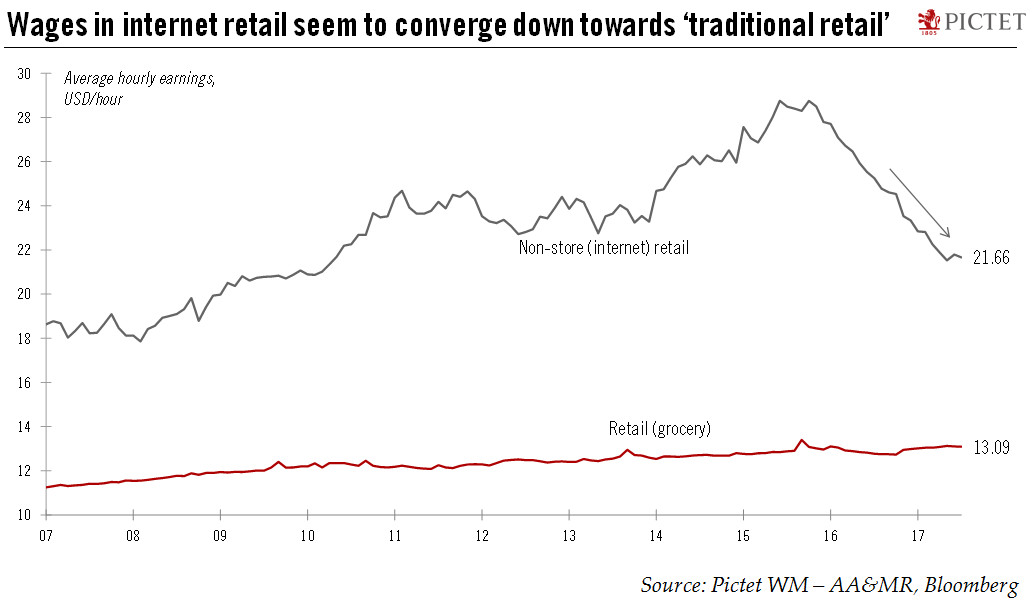The US labour market is tight, but wage growth remains relatively muted. Trends in e-retailing may provide part of the explanation.The US economy is challenging ‘textbook’ macroeconomics. The labour market is tight, but wage growth is paltry. Growth is chugging along steadily and the output gap (the difference between actual GDP and its theoretical trajectory at full potential) is gradually closing, but inflation remains muted.Clues as to why things are not panning out the way theory suggest they should need to be sought at the microeconomic level, in our view. In particular, one should look at how the internet and its burgeoning ecosystem are challenging ‘traditional’ sectors. We think the disruption the internet is causing is at least partially responsible for the ongoing softness in
Topics:
Thomas Costerg considers the following as important: Internet disruption, labour market disruption, Macroview, US economic disruption, US low wage growth
This could be interesting, too:
Cesar Perez Ruiz writes Weekly View – Big Splits
Cesar Perez Ruiz writes Weekly View – Central Bank Halloween
Cesar Perez Ruiz writes Weekly View – Widening bottlenecks
Cesar Perez Ruiz writes Weekly View – Debt ceiling deadline postponed
The US labour market is tight, but wage growth remains relatively muted. Trends in e-retailing may provide part of the explanation.

The US economy is challenging ‘textbook’ macroeconomics. The labour market is tight, but wage growth is paltry. Growth is chugging along steadily and the output gap (the difference between actual GDP and its theoretical trajectory at full potential) is gradually closing, but inflation remains muted.
Clues as to why things are not panning out the way theory suggest they should need to be sought at the microeconomic level, in our view. In particular, one should look at how the internet and its burgeoning ecosystem are challenging ‘traditional’ sectors. We think the disruption the internet is causing is at least partially responsible for the ongoing softness in wage growth. With this disruption likely to continue, wage growth is unlikely to break decisively higher in the coming months, in our view. This will in turn most probably mean the Fed’s tightening cycle remains very gradual.
Average hourly earnings rose only 2.5% y-o-y in August. For production workers (i.e. those in non-managerial positions), wages were up even less: 2.3% y-o-y. Trends in both internet and traditional retail could be partially responsible for low wage growth. In fact, wages in internet retail seem to be ‘converging down’ towards those in traditional retail, perhaps because after an initial phase when internet recruitment was about filling engineer / administrative positions, now internet retailers are more likely to looking for lower-paid staff in areas such as order fulfilment. Wages for production workers in non-store retailing declined 14.2% y-o-y to USD 21.66/hour in July (latest available data), while in grocery retailing wages rose 2.5% y-o-y, to USD 13.09/hour.
